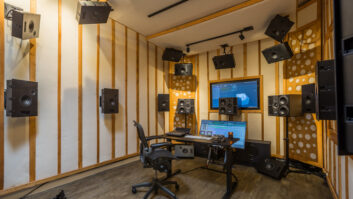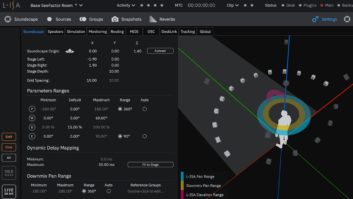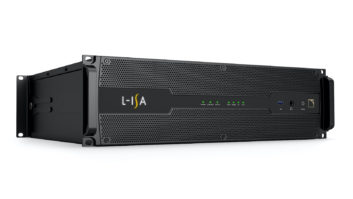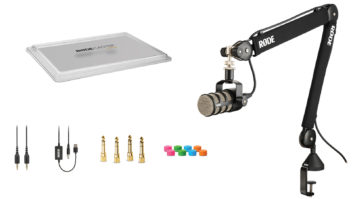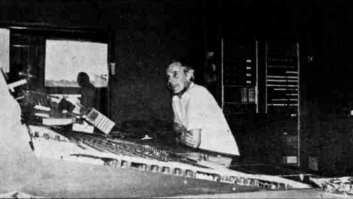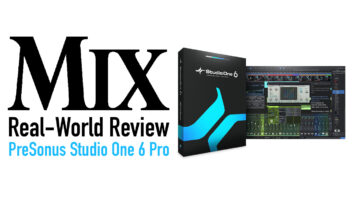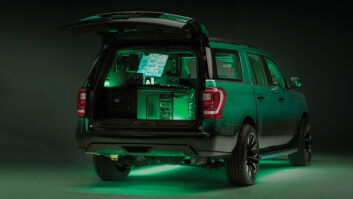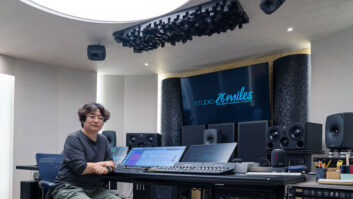Hollywood, CA—Gold Diggers, a storied location on historic Route 66—now Santa Monica Boulevard—in East Hollywood has reopened as a boutique hotel, club and music recording facility masterminded by Dave Neupert, a partner in various Los Angeles nightlife venues, and Dave Trumfio of Kingsize Soundlabs. The studio complex, located in a former movie soundstage directly behind what Neupert has labeled the “Bed and Beverage,” offers nine production spaces, from small writing rooms to its flagship Studio 1, which is outfitted with the first API 2448 analog console to come off the manufacturer’s production line.
The complex has a storied past. The main building was constructed in 1924 as a tavern and inn for Route 66 travelers, but its last incarnation was as a seedy dive bar—Gold Diggers, from which the entire venture takes its name—featuring exotic dancers. Meanwhile, the 6,000-square-foot bow-truss building out back was originally a dance school before becoming pulp film director Ed Wood’s soundstage, then Shamrock Studios, where, legend has it, The Doors and Jimi Hendrix rehearsed. In the 1980s, it was home to hair metal bands, including Guns N’ Roses precursor Hollywood Rose.
Today, Gold Diggers’ slogan sums up the synergy the partners hope to cultivate: “Drink. Sleep. Record.” Artists can stay at the hotel for a few weeks, roll out of bed and into the studio and, if the mood takes them, even do a live show at the 150-capacity club.

The club was the first part of the campus to reopen—a necessity to keep the liquor license active. Trumfio helped design the audio capabilities, which includes Roxul Rockboard 80 acoustic treatment and a corner stage with a QSC P.A. system. “I love the corner loading with drums,” he says. A DJ/sound booth located in the former walk-in refrigerator offers a Midas 32R digital console feeding a Pro Tools rig. Recent performances have included Fields, Luna and Sofi Tukker.
“The plan is to record and video the shows for branded content,” he says. “With some of our partners, we’re looking to put records out and create unique content.”
The music-inspired Gold Diggers Hotel occupies two floors above the club and offers 11 rooms, many of them apartment-like mini suites, some with views of the Hollywood Sign and Griffith Observatory. Parquet Courts band member A. Savage created the artwork in the rooms and hallways.
Related: Striking Gold at Eldorado Recording Studios, by Steve Harvey, April 26, 2018
“Justin Gage—Aquarium Drunkard—has been helping curate the vinyl in every room,” each of which includes an Audio-Technica turntable, says Trumfio. “And when you check in, you get our vinyl compilation, Gold Diggers Vol. 1.”
With Gold Diggers Sound’s nine production spaces, Trumfio has now built more than 40 rooms in his native Chicago and L.A., where he has been a resident since the late ’90s. “I’ve gone for the splayed walls in past rooms, but my favorite rooms are just rectangles that I treat. With this building, I’m dealing with maximizing the space and I have to deal with soundproofing between rooms, so the shared walls are really thick and there’s a lot of air between them.”

The rooms, many with an adjoining iso booth, serve as small writing spaces, “audio offices” or music production rooms of varying sizes and capabilities. A central patch enables any space to be linked via analog to any other with Dante networking. That network also transports video, additionally available, including to the club and for the HearBack monitor systems.
“Any of the rooms can be booked as a self-contained room,” says Trumfio, “or with the Sound Stage,” a tracking space running the width of the building. The brick-walled space’s theater curtains enable it to become a black box—there’s a pull-down screen and projector—or alter the acoustics.
Studio baffles have been designed to double as a modular stage. The concept is for the Sound Stage to also host special events, from writing camps to band showcases. “We’ve already hosted listening parties with Spotify and Apple Music,” Trumfio reports, and other major content companies and record labels are interested in the space.
The flagship control room, Studio 1, looks directly into the Sound Stage. Trumfio took delivery of the room’s 32-channel, dual-input API 2448 console at the recent AES Convention, a sale facilitated by Vintage King’s Jeffrey Ehrenberg.
Related: At AES: API Introduces 2448 Analog Console, Oct. 18, 2018
As Trumfio commented when the desk was unveiled at the convention, “We were looking for a good rock ’n’ roll console and API, of course, is a great rock ’n’ roll console.” Gold Diggers starts taking bookings in January, but has already hosted a shakedown session or two, including drum tracking through the API for One Republic’s next record, he says.
“One cool thing is that API is the king of the 500 Series, so we’ve also put 500 Series capabilities in the other rooms,” says Trumfio, and floating lunchboxes are additionally available. The API desk is fully outfitted with 500 Series modules. “I just want to have the greatest hits in classics and modern classics,” he says.
Indeed, every production space is an Aladdin’s Cave of boutique and more mainstream gear, including items such as Heritage Audio’s MCM8 II 500 Series rack loaded with Trident, SSL and API EQ modules and pairs of BAE 1073s. There are pieces from Tree Audio, Overstayer Audio, Spectra and others.
Studio 3, outfitted as more of a modern pop hybrid space, offers eight channels of 1081 in Geoff Tanner’s Aurora Audio GT4-8 box, plus units from Undertone Audio and others. The room’s SSL console is equipped with yet more 500 Series modules: “That’s one of the reasons why I went with the SSL XL-Desk,” says Trumfio.
Eric Gorman, formerly at New York’s Magic Shop, has relocated to become chief engineer at Gold Diggers. Gorman has also relocated his former facility’s B room, including the venerable Neotek console.
Want more stories like this? Subscribe to our newsletter and get it delivered right to your inbox.
A wide choice of monitoring is available facility-wide. Studio 4, a writing room, offers new ADAM A77Xs, plus a pair of classic Tannoy 6.5s and a Bryston 3B amp. Studio 5 is a mirror image. “We wanted to create a home studio-away-from-home for traveling producers and writers,” says Trumfio. Other control rooms variously feature ATC, Focal, Genelec, ProAc and Yamaha models.
Despite all that variety, Trumfio partnered with several manufacturers to standardize on certain equipment choices. Pro Tools HDX is available throughout and many rooms include UAD Apollo or Satellite interfaces.
“We did a big purchase from Vintage King, and a first-of-its-kind enterprise deal with Reverb. We set up an account and funded it, and we were able to find a lot of cool deals for gear, instruments and older effects.” Also on the instrument side, he adds, “We just did an artist deal with Fender, and Earthquaker, Moog, Elektron and Native Instruments did something with us.”
Trumfio has been promoting Gold Diggers’ drink-sleep-record concept worldwide to labels and content companies. “We want to do partnerships to bring in artists from England, Australia, Asia. And they can put them up at the hotel.”
Already, he says, “A couple of English labels want to come and take over the campus for a few days. We’re really excited about that, that we can fill the rooms for a week.”
Gold Diggers, www.gold-diggers.com
